Sudan: From protests to power struggle
-
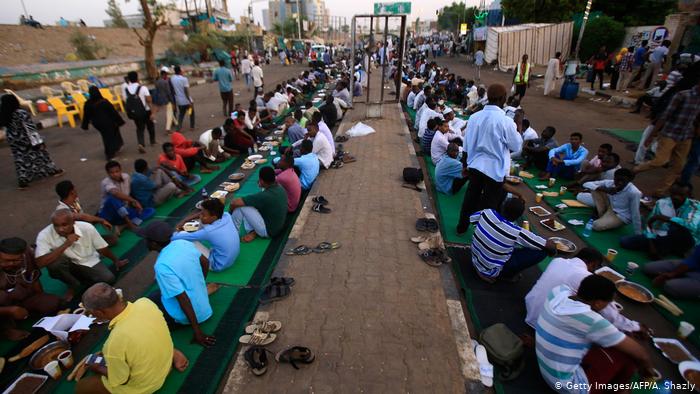
Breaking fast during the protests: for weeks – even during Ramadan – thousands of protesters camped outside Sudan's defence ministry, demanding a transitional council in which civilians could decide the future of the country. In early June the military moved in and forcefully removed the protesters. Dozens of people died and those who survived reported rapes, sexual abuse and the use of force -
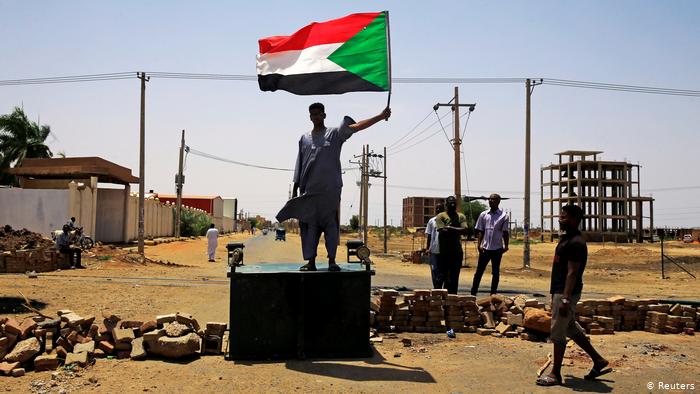
For the love of the country: a protester holds up the national flag outside the army headquarters. His demand: that Sudan's Transitional Military Council hand over power to the civilians. This, the protesters believe, will be an important step towards democracy -
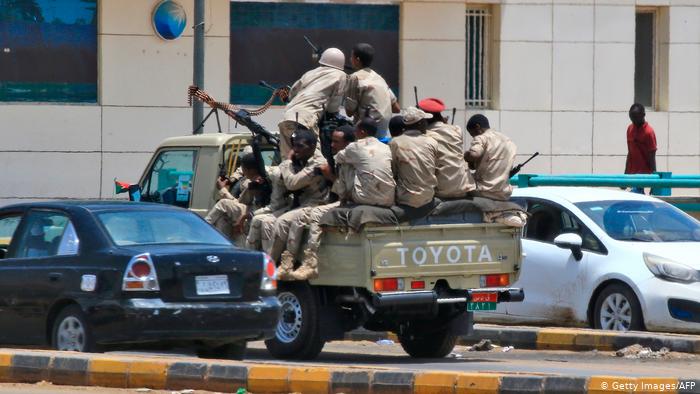
Warning signs: in early June, just days ahead of the crackdown on the sit-in, the military increased its presence on the streets. Many protesters predicted that the army would not want to hand over power. This was what they hoped for after the ousting of long-time president Omar al-Bashir -
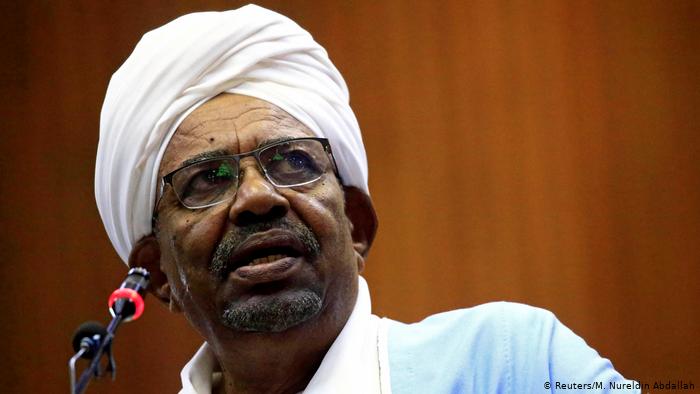
The end of an era: from 1989 until his April 2019, Omar al-Bashir ruled Sudan. He suppressed critics. In 1999 he even dismantled parliament in order to maintain his grip on power. His name will, however, be remembered for his handling of the Darfur crisis. His troops' harsh response led to thousands of deaths and for that, he is wanted for crimes against humanity at the International Criminal Court -
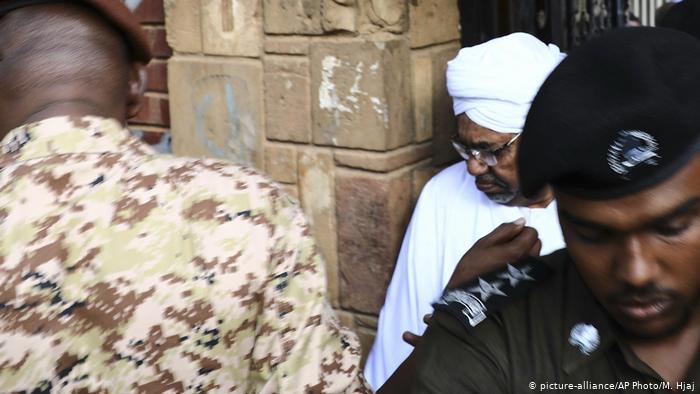
A dictator in court: many Sudanese had been waiting for this day for a long time – the day when Omar al-Bashir would have to face a court. On 16 June, he appeared before prosecutors, accused of corruption and the illegal possession of foreign currency. After being ousted, security forces found over one million U.S. dollars stashed away in his villa -
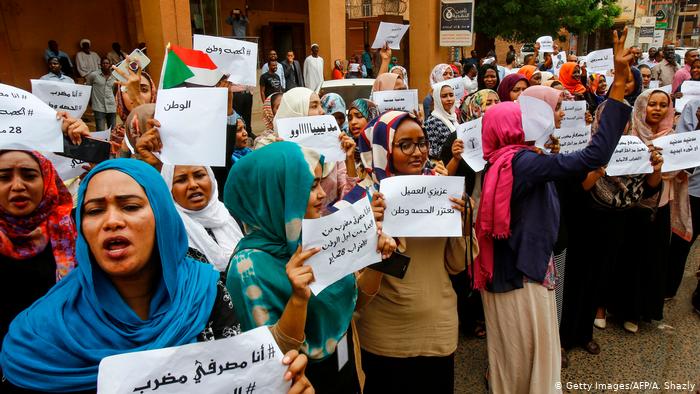
The voice of the women: many women actively participated in the protests and they gave the protests a different face. Their presence underlined the protesters demand for democracy and equal rights. During the brutal crackdown by security forces, many women reported sexual abuse and rape as a means to silence them -
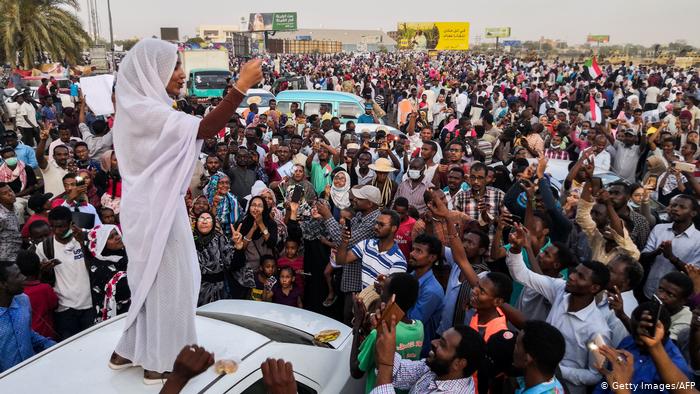
The Nubian queen – an icon of the revolution: architecture student Alaa Salah became the face of the revolution. A photographer shot this picture as she stood on top of a car and addressed protesters. Photos and videos of her protest chants trended on social media. Online she is known as "Kandaka" or the Nubian queen -
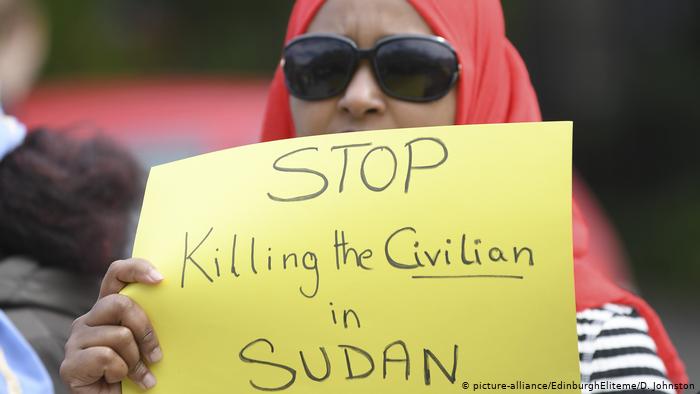
International solidarity: thanks to social media, the protests rapidly caught international attention and support from human rights groups and Sudanese living abroad. In a statement, the EU's foreign ministers urged for an immediate end to all forms of violence against Sudanese civilians -
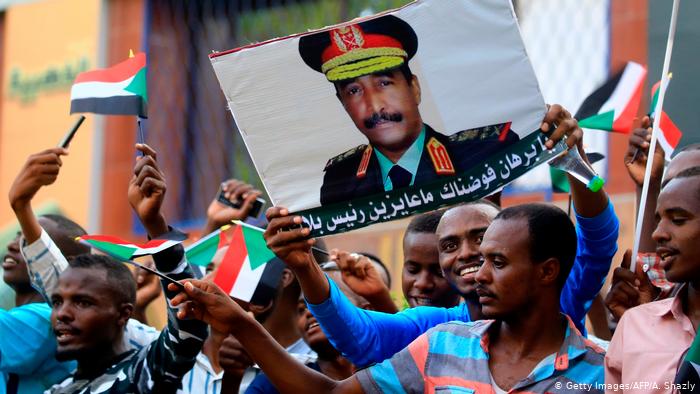
Some still support the military: but not all Sudanese civilians are against the army. Some people, in fact, want a tough military rule to give the country security and strength. The army supporters have placed their faith in General Abdel Fattah Burhan, the head of the Transitional Military Council -
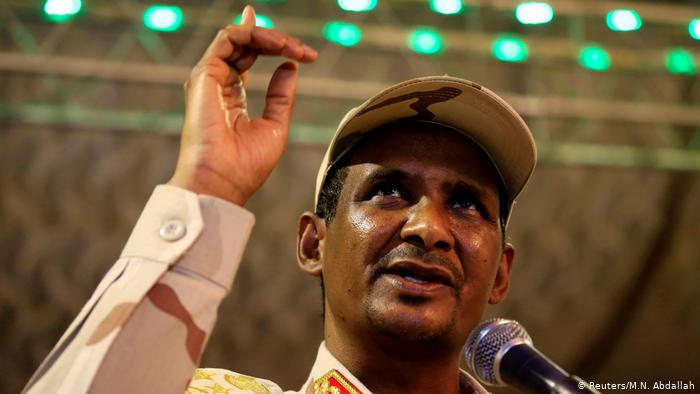
The strongman in the background: the real power, however, lies not with General Abdel Fattah Burhan, but his deputy, General Mohammed Hamdan Daglu, also known as "Hemeti". He heads the Rapid Support Forces (RSF) who cracked down brutally on the protesters. During the war in Darfur, he commanded the feared Janjaweed militias. The protesters fear that he could, in the end, take power -
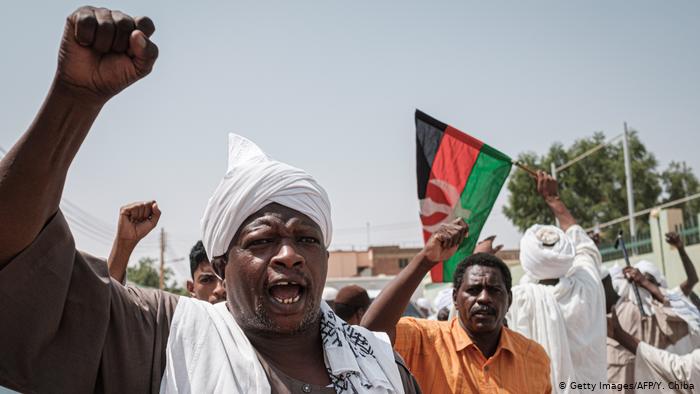
No end in sight to the protests: the protests continued unabated throughout June. Military leaders on Monday, 23 June, turned down a proposal for a power-sharing deal. The protest leaders, represented by the coalition Forces for Declaration of Freedom and Change, which includes the Sudanese Professional's Association, had accepted the deal which was negotiated with the help of Ethiopia -
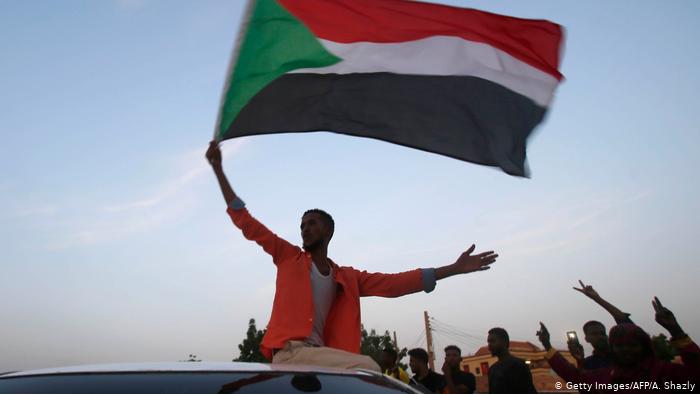
Power-sharing deal negotiated: on 5 July members of the military and protest movement representatives announced they had reached a deal to share power. For the next three years, a transitional council consisting of six civilians and five military figures will lead the country. Democratic elections will then be held. People in Khartoum celebrated the news, though the practicalities of implementation cause conflict to re-ignite -
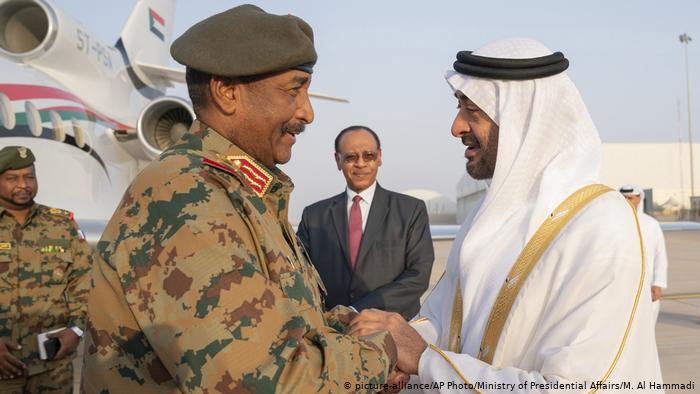
Help from the Gulf: Politicians of other Arab nations continue to watch the developments in Sudan with a certain degree of concern. Mohamed bin Zayed Al Nahyan, the Crown Prince of Abu Dhabi, it is believed, fears that successful grassroots protests could set an example for citizens in the Arab Peninsula. Both the United Arab Emirates and Saudi Arabia appear to be supporting the military regime -
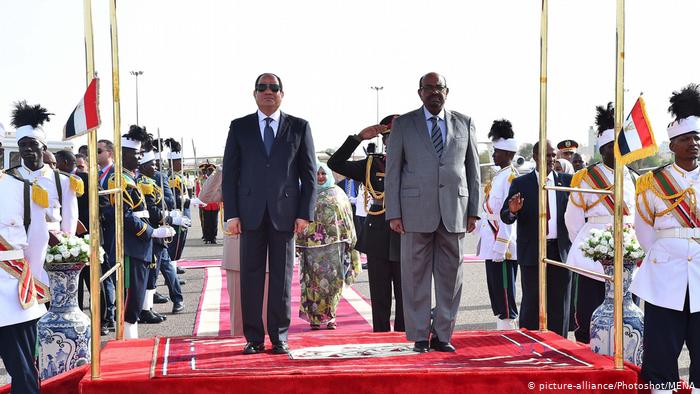
The neighbour in the North: Cairo seems similarly concerned about the events in Khartoum. Egyptian president Abdul Fattah al-Sisi (pictured l. with Omar al-Bashir in 2018) fears that the Muslim Brotherhood, which Egypt has been trying to silence, could fall on fertile ground in Sudan. If the Muslim Brotherhood gains support in Sudan, al-Sisi believes that its success might strengthen the group again in Egypt
https://qantara.de./en/node/8764
Link
To all image galleries
